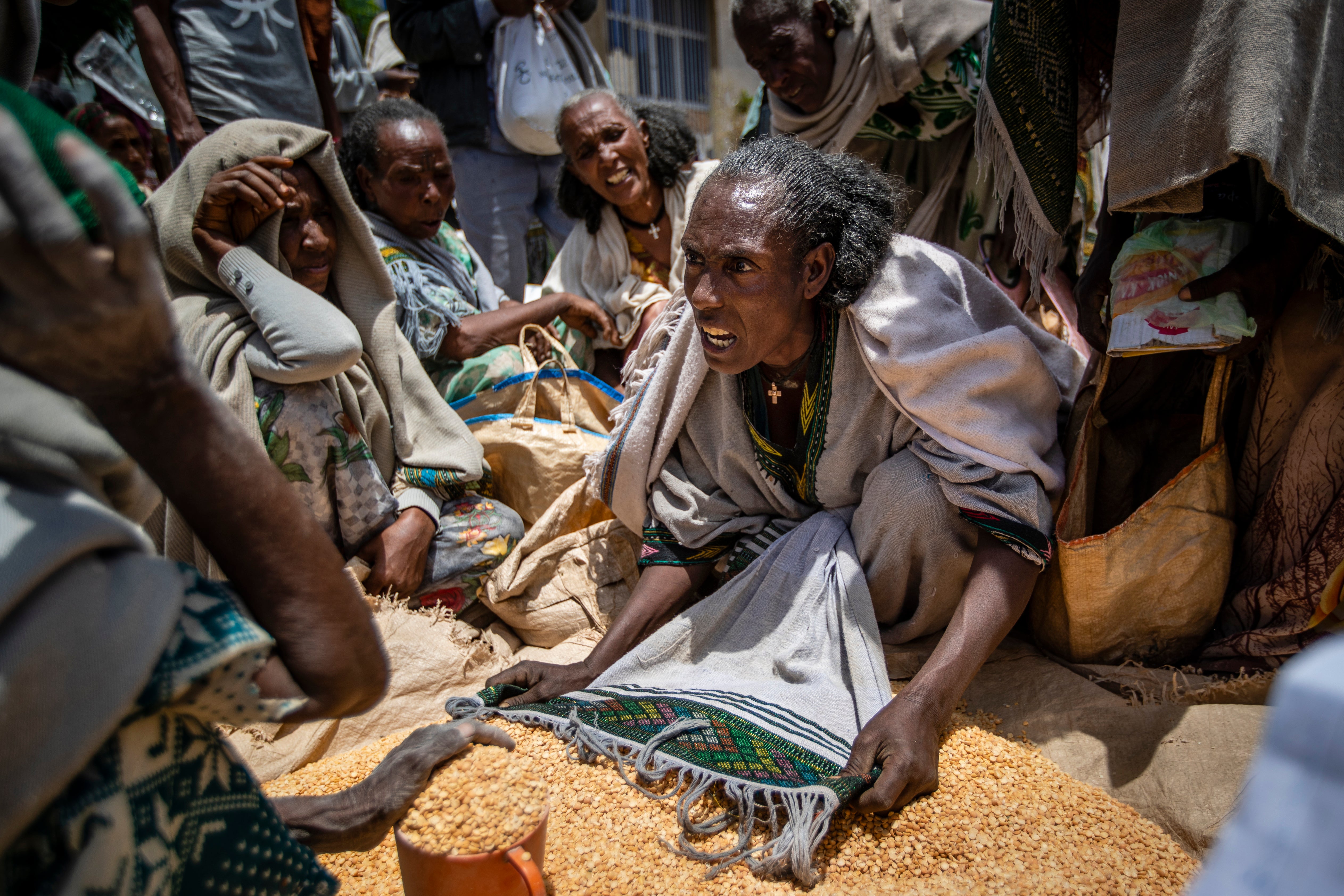UN says humanitarian conditions 'hellish' in Ethiopia's war
The United Nations secretary-general says humanitarian conditions in Ethiopia are “hellish” as the nine-month Tigray conflict spreads in Africa’s second most populous country

Your support helps us to tell the story
From reproductive rights to climate change to Big Tech, The Independent is on the ground when the story is developing. Whether it's investigating the financials of Elon Musk's pro-Trump PAC or producing our latest documentary, 'The A Word', which shines a light on the American women fighting for reproductive rights, we know how important it is to parse out the facts from the messaging.
At such a critical moment in US history, we need reporters on the ground. Your donation allows us to keep sending journalists to speak to both sides of the story.
The Independent is trusted by Americans across the entire political spectrum. And unlike many other quality news outlets, we choose not to lock Americans out of our reporting and analysis with paywalls. We believe quality journalism should be available to everyone, paid for by those who can afford it.
Your support makes all the difference.The United Nations secretary-general said Thursday that humanitarian conditions in Ethiopia are “hellish” as the nine-month Tigray conflict spreads in Africa’s second most populous country.
Antonio Guterres told reporters that the spread of the fighting “has ensnared even more people in its horror.” Thousands of people have been killed since November, hundreds of thousands inside Tigray face famine conditions and hundreds of thousands in the neighboring Amhara and Afar regions have been displaced in recent weeks as resurgent Tigray forces move in.
The secretary-general said he spoke with Ethiopian Prime Minister Abiy Ahmed earlier Thursday and “there was a commitment things would improve, but we have to see what happens in the next few days.” Previous commitments have not brought the unrestricted humanitarian access that the U.N. seeks for the Tigray region of some 6 million people.
The latest U.N. humanitarian update on Tigray, released on Thursday, said 100 trucks of supplies — 90 of them with food — must enter Tigray every day to help meet the needs of more than 5 million people.
But just 316 trucks had entered the region between July 12 and last Sunday, the update said. The U.N. and U.S. have described the Ethiopian government's almost complete blockade of Tigray as a “siege,” and humanitarian workers have been subjected to what the U.N. calls “intense” searches by local authorities at checkpoints. Aid groups are running out of fuel, medical supplies and other resources.
Now many civilians in Amhara and Afar are on the run as allegations grow of shelling and targeted killings by the Tigray forces. Ethiopia's government this year declared the Tigray People's Liberation Front, which dominated the country's government for 27 years before Abiy came to power, a terrorist group after a political fallout turned into fighting.
The U.N. secretary-general urged an immediate cease-fire, the creation of conditions for an Ethiopia-led political dialogue, unrestricted aid access and the return of basic services. Telephone, internet and banking services remain cut off across Tigray, further challenging efforts to deliver aid.
Guterres said he has been making “intense contacts” to press for a cease-fire and said he and African Union Commission chair Moussa Faki Mahamat “see eye to eye on what needs to be done.” The AU, with its headquarters in Ethiopia’s capital, has faced criticism for being quiet about the crisis on its doorstep.
The spokeswoman for Ethiopia’s prime minister, Billene Seyoum, did not respond to questions about Guterres’ comments or the “American initiative” he said was taking place in pursuit of a cease-fire. The prime minister this week didn’t meet with a U.S. special envoy, Jeffrey Feltman, during his Ethiopia visit, instead going to Turkey to sign a military cooperation agreement.